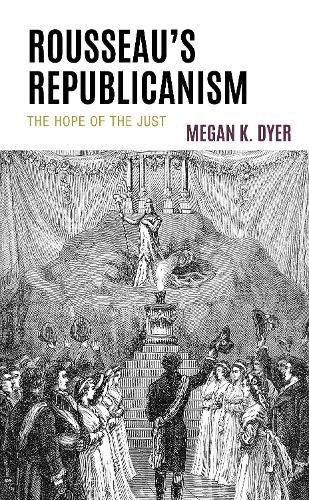Readings Newsletter
Become a Readings Member to make your shopping experience even easier.
Sign in or sign up for free!
You’re not far away from qualifying for FREE standard shipping within Australia
You’ve qualified for FREE standard shipping within Australia
The cart is loading…






Reading Rousseau as a republican thinker might seem almost too obvious a proposition. All the same, the Genevan is often struck from accounts of modern republicanism given by those associated with the revival of republican thought. At the root of this omission is perhaps the greatest puzzle of Rousseau's republicanism is that it demands his readers untangle the omission. In bringing the republic's sovereign power into the Enlightenment, Rousseau pairs it both with the premise of natural liberty and equality and also with an account of man singularly unsuited to realizing the rightful consequences of this shared nature.
Looking to both major works and lesser-known writings, this book demonstrates that, in the face of human finitude and the formidable demands of right, Rousseau crafts a robust yet judicious account of the republic. Through comparison with various republican lineages, its chapters explore Rousseau's engagement with leading moral and political problems that have defined and redefined republicanism: attaining virtue, preserving liberty, sustaining the social order, orienting persons toward the common good, and having the law rule over men. The goods of civil association are always precarious, yet Rousseau nonetheless recognizes in human community an answer to the great problems of his thought-those of inequality, unhappiness, and unfreedom.
$9.00 standard shipping within Australia
FREE standard shipping within Australia for orders over $100.00
Express & International shipping calculated at checkout
Reading Rousseau as a republican thinker might seem almost too obvious a proposition. All the same, the Genevan is often struck from accounts of modern republicanism given by those associated with the revival of republican thought. At the root of this omission is perhaps the greatest puzzle of Rousseau's republicanism is that it demands his readers untangle the omission. In bringing the republic's sovereign power into the Enlightenment, Rousseau pairs it both with the premise of natural liberty and equality and also with an account of man singularly unsuited to realizing the rightful consequences of this shared nature.
Looking to both major works and lesser-known writings, this book demonstrates that, in the face of human finitude and the formidable demands of right, Rousseau crafts a robust yet judicious account of the republic. Through comparison with various republican lineages, its chapters explore Rousseau's engagement with leading moral and political problems that have defined and redefined republicanism: attaining virtue, preserving liberty, sustaining the social order, orienting persons toward the common good, and having the law rule over men. The goods of civil association are always precarious, yet Rousseau nonetheless recognizes in human community an answer to the great problems of his thought-those of inequality, unhappiness, and unfreedom.